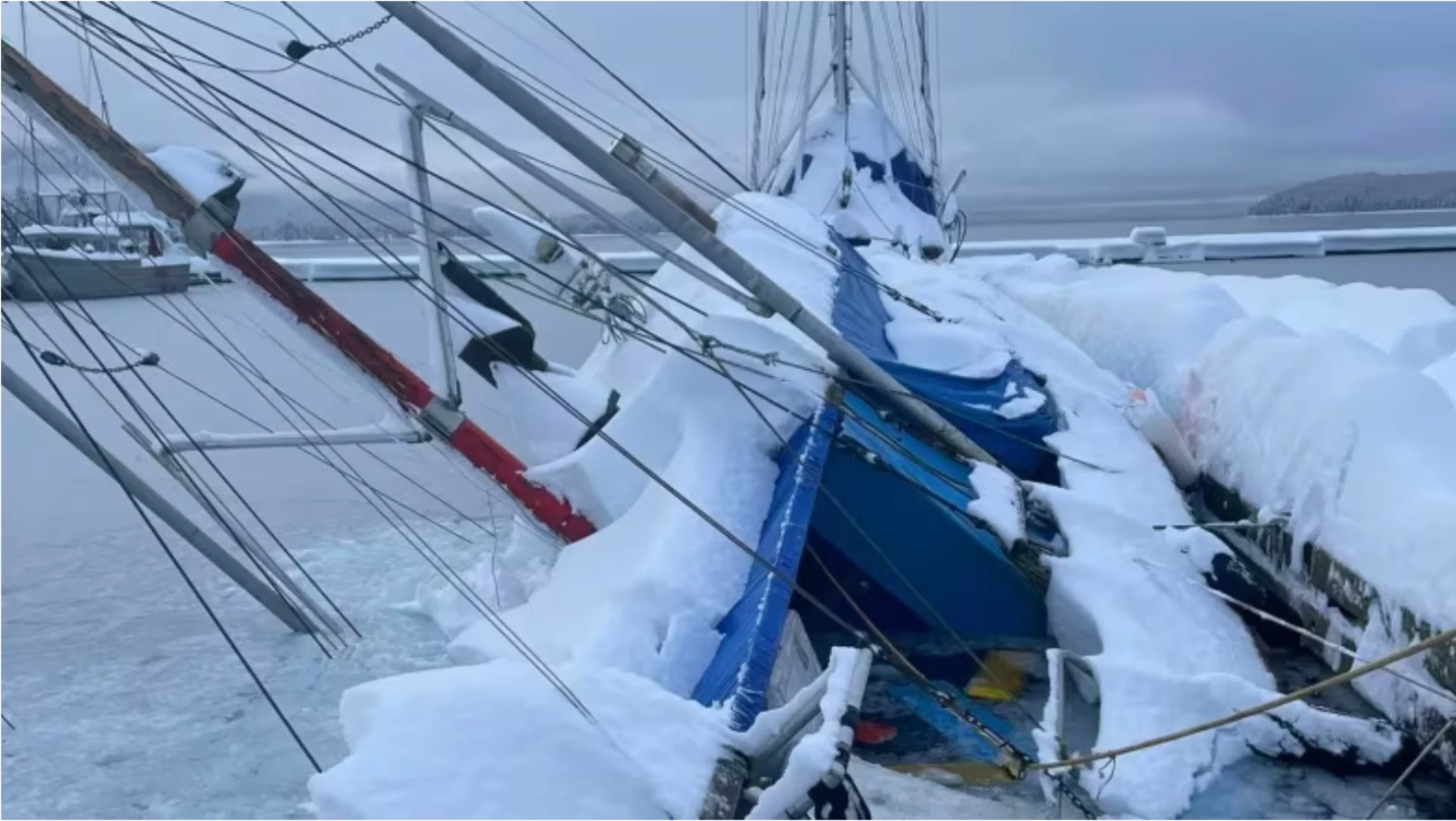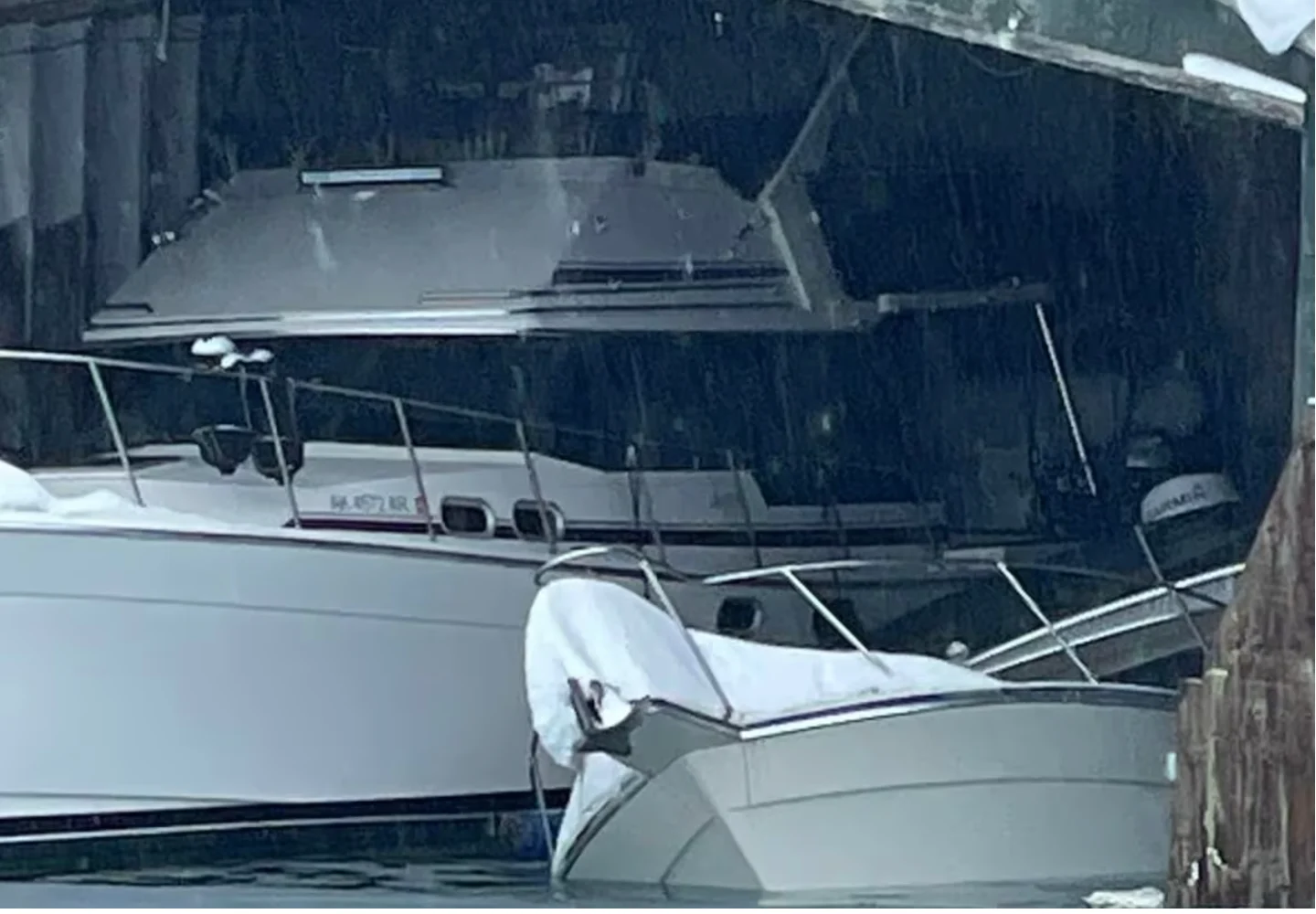
Heavy snowfall in Juneau, Alaska, sinks boats in harbour
Heavy snow in Juneau, Alaska, has wreaked havoc on boats, roofs and roads.
Whitehorse's sister city has received more than five feet of snow so far in January. Last week, 30 inches of snow fell in three days.
"Oh my gosh, Saturday — I think it was the 13th of January — it started snowing, and that first storm dropped over 30 inches," said Matthew Creswell, Juneau's harbour master.
That was the start of two storms in an 11-day period dropping over 60 inches (152 cm) of snow, he said.
"What that causes is just excess weight and snow build-up for people who don't come down and keep their boats shoveled off. Yesterday morning alone, we had four boats sink in about a three-hour period, and the day before that, we had another one sink. ... So we are [at] about a total of eight boats over a 12-day period from this heavy snowfall," Creswell said.
The boats that sank will most likely be destroyed and disposed of, he added.

Around eight boats sank in a period of 12 days, said Matthew Creswell, Juneau's harbour master. (Submitted by Matthew Creswell)
"Depending on the size of the boat, the total process can run anywhere from $7,000 up to $50,000 just to remove and get rid of the boat."
Some owners down south
Some owners of boats that sank are living in the warmer parts of the southern United States in the winter, he added.
He has been busy over the last few days trying to contact the owners.
"Folks from Whitehorse that come down ... a lot of their boats get pulled out and put on the boat yards over the winter," said Creswell. "But I think I've got a couple of Yukon boats in the harbour right now"
SEE ALSO: Meet Kipper, the newest — and only — avalanche dog in Canada's North
He hasn't had to make a call to the Yukon, he said.

Juneau has received more than five feet of snow so far in January. (Submitted by Matthew Creswell)
As far as he knows, Yukon-registered boats are weathering the snow and still floating.
City crews, meanwhile, have been extremely busy clearing snow.
"I don't think anybody is sleeping very much because you have to remember that every one of these people that's working 10-and 12-hour shifts goes home to a house that's also buried, and they're working on their own," said Tom Mattice, avalanche forecaster and emergency programs manager for the City of Juneau.

The boats that sank will most likely be destroyed, said Matthew Creswell. (Submitted by Matthew Creswell)
"We've been fortunate to have everybody taking care of themselves and their families and working really, really hard. And we hope to get through this with a limited amount of chaos, and we look forward to spring."
Avalanches continue to threaten the city, Mattice said.
"Over the next several days, we are going to be seeing more than an inch of moisture a day for days on end and with very warm temperatures that will likely produce region-wide avalanches once again," he said.
He added the new storm with 30-plus inches of snow has the ability to produce very large avalanches.
"So when we see this kind of event, we want people to be aware, to spend a limited amount of time near the avalanche stream, which includes the urban interface. And that's why we have urban avalanche maps to show people where those live."
WATCH | Could your voice trigger start an avalanche?
This article, written by Mike Rudyk, was originally published for CBC News.









